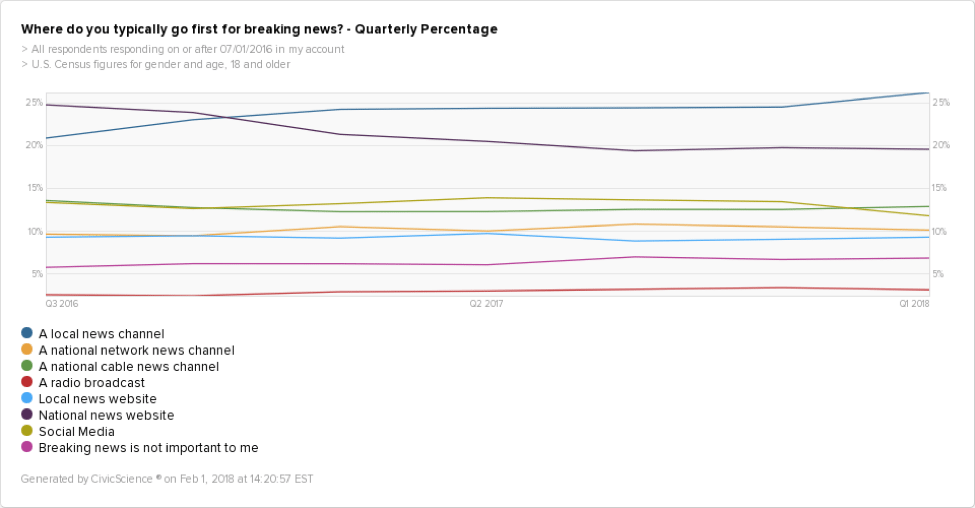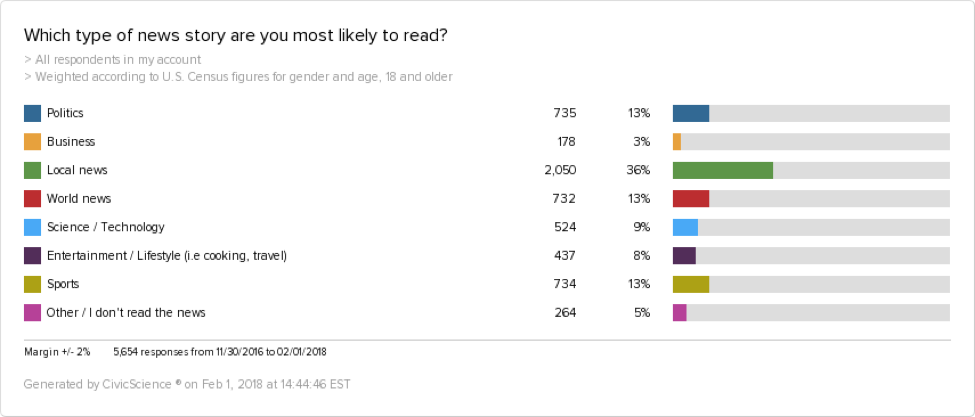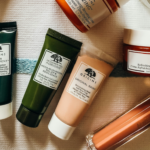News Flash: Mark Zuckerberg is smart. You don’t build the largest, most ubiquitous, and influential media company in the world by being a moron. So, when Facebook jolted the media landscape last week with the announcement that they would begin prioritizing local news content in its users’ feeds, it wasn’t just an idealistic move. It’s brilliant business.
As consumers’ trust in media has been turned upside down over the past 18 months, local outlets have increasingly become the go-to source for news. Take a look at these trend lines since the middle of 2016:
Almost immediately following the 2016 election and the news maelstrom that ensued, local news channels (the dark blue line) overcame national news websites as the top source of breaking news among the largest percentage of Americans. Nearly all other forms remained flat during that period. Notice that the blue line climbed even further just in the past month.
And that’s only part of the picture. Surely, with all of its user metrics and analytics, Facebook won’t be remotely surprised to see this:
People are likely to read local news content by nearly 3X more than the next most popular genre of news. The numbers are even more lopsided among high-value female consumers, 43% of whom choose local content over all others.
And why do people prefer local news so much over other outlets? It’s simple. Trust.
Over 1/3rd of U.S. adults consider local TV stations or newspapers the most trustworthy sources of unbiased news – the most popular choice by a full 15% percentage points. We trust our local news sources, maybe because we grew up with them, or because we see our favorite newscasters in the grocery store or because they visit our kids’ schools.
As Mark Zuckerberg and his team set out to solve the ‘fake news’ crisis plaguing media today, promoting and prioritizing local news makes all kinds of sense for Facebook, both philosophically and commercially. People trust local news more than all others. People are more likely to read news they trust. The more articles people read, the more money Facebook makes. You don’t need to be a genius from Harvard to figure out that puzzle.
But it’s still smart.











